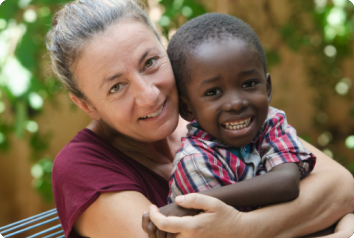 In a recent article posted on the website A Cup of Joe, a reader asked, “As a white woman, can I adopt a black child?” While on the surface, it seems like this question should have a simple answer: if a child needs a home, what does race really matter? However, like all aspects of adoption, the answer is more complex.
In a recent article posted on the website A Cup of Joe, a reader asked, “As a white woman, can I adopt a black child?” While on the surface, it seems like this question should have a simple answer: if a child needs a home, what does race really matter? However, like all aspects of adoption, the answer is more complex.
Transracial adoption can be filled with complicated feelings and emotions for the adopted child, and it’s important that as a parent you are well-equipped to handle issues related to race, culture, and identity—especially when your child’s experience is vastly different than your own.
The best things you can do as a prospective parent considering adopting a child of a different race is to educate yourself, question and assess your own biases, and commit to a lifelong journey of learning. For those thinking about beginning the journey of transracial adoption, here are some helpful questions to ask yourself:
 Will your child have other people in the community that look like them or will they be isolated?
Will your child have other people in the community that look like them or will they be isolated?- Do you have the ability to see your child as more important than you, enough so as to push you outside of your comfort zone?
- If you do not look like your child, how will you help your child develop positive self-esteem and racial identity?
- What activities do you genuinely engage in as a parent on a daily, weekly, monthly, or yearly basis that reflect your child’s ethnic origin, to help promote a connection?
- Do you have other people that can be adult role models or mentors to your child who are people of color of the same racial or ethnic background as your child?
- What is your knowledge of your child’s ethnic history, and how will you teach it?
- When your child no longer looks like a child and is in the community without you, will they know how to respond to situations that involve micro-aggressions, implicit racial bias, and other forms of racism?
- Will your child develop the capacity and be equipped to code switch?
“It is important for parents to be intentional when raising children of color and create an environment that reflects them and supports positive self-esteem and identity development,” says Children’s Home President Alexis Oberdorfer. “Exposure, proximity, and access to people and communities of coIor is critical to developing the skills needed to combat microaggressions and racism that will be experienced as long as we live in a racialized society.”
Families need to be pro-active and open-minded, understanding that raising a child of another race or culture takes more than love. Parents must be willing to actively seek resources to understand how to prepare and support children to become adolescents and adults who are prepared to participate in the community as a person of color.
More resources for parents considering transracial adoption:
- Watch our free webinar Antiracism for Kids and Families
- Read Tips for Raising a Transracial Adoptee
- Listen to The Adopee Next Door, a podcast created by transracial adoptee, Angela Tucker


